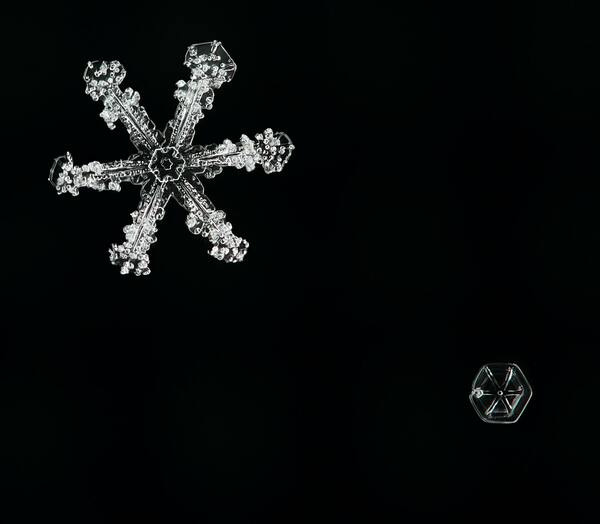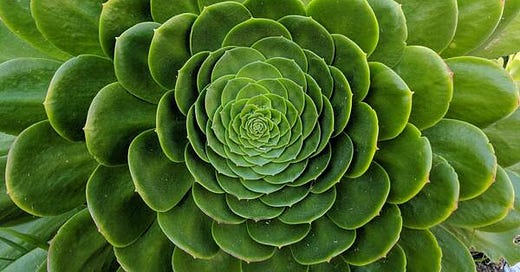ecophilia - fasting, fungi & fractals #5, the fractal nature of reality
Jessica Böhme
Day 7 of 108 of fasting, fungi & fractals.
The fractal nature of reality

Everything in the universe can be studied at different levels of detail. And each of these levels displays patterns that are self-similar and repeating. Complexity emerges from smaller parts creating patterns that are larger and different from themselves. This applies to ecosystems, society, relationships, emotions, or processes.
The universe is fractal.
That the universe is fractal is well acknowledged in modern physics. It is also a striking feature of the philosophy of the three wise German thinkers Nicholas of Cusa, Leibniz, and Goethe. The mathematician Ian Stewart describes it as such:
“Dendritic, or branching form, such as one sees in frost on a window pane, or in a plant such as a fern, is fractal. There is a main stem, with smaller stems coming off it, and ones smaller still branching off them, and so on. Interestingly, this has to do with symmetry-breaking: The reason for this kind of shape is that as something grows (ice crystals, plant), as it passes some critical size, the smooth edge becomes unstable and starts to get bumpy. Then the bumps grow, obeying much the same rules, and the process repeats. It’s actually another case of symmetry-breaking, analogous to ripples forming in a flat plane, but here the ripples form along a flattish edge. So again we see mathematical unity in very different physical systems”.

A transition towards the Ecocene acknowledges the fractal nature of reality.
The fractal nature of health
We cannot have a healthy ecosphere, without a healthy human civilization. Human civilization depends on a diversity of healthy cultures, which depends on healthy ecosystems, which depend on healthy communities, which depend on healthy individuals, which depend on healthy cells and microbes.
A fractal dimension of relationships connects the individual to the microcosmos and the macrocosmos. At each scale, health is a complex property that emerges out of the health of the smaller scale.
If I care about the health of the planet, I need to take care of my body, and I need to take care of all the beings making my body. And for me, this is where the threats of fasting, fungi & fractals form their first knot. Fasting is a practice of probiotic healing. This requires a little deep dive into the concept of self-care for a better world. It can be misleading into egotism, and there is a threshold between caring for myself in a regenerative way and caring for myself. Period. But more about that later.
The fractal nature of metamodern politics
Hanzi Freinacht describes that the philosophical principle of metamodern politics holds that
“social life is of fractal nature, and that society consists of three interdependent dimensions that always repeat themselves but ultimately depend on one another: solidarity, trade and competition.”
Iain McGilchrist describes the repeating patterns as follows.
“When one compares the single cell to the whole organism to which it belongs – in other words, over the most colossal scale – one finds that common to each are the needs to co-ordinate information, to exchange energy with the surroundings, to have a functioning system of internal distribution, to have the ability to repair and protect itself, to exert ‘border control’, and to have the capacity to carry on producing itself. In fact, zooming outwards from the human individual to society, rather than inwards to the single cell, one finds the same fractal pattern – the same needs – much as one might expect. Those needs and drives that we know at one level as explicit are implicit at other levels; there is no absolute, merely a relative, difference in kind as the scale changes.”
I am not sure if these are the three key patterns. Yet, I hope to find out through emerging myself in fungi, which appear to be exceptionally resilient and live-giving, to identify possible ways to help us transition towards the Ecocene.
But more about fungi tomorrow.
Until then,
Warmly,
Jes
In order to unsubscribe, click here.
If you were forwarded this newsletter and you like it, you can subscribe here.
Created with Revue by Twitter.
Jessica Böhme, Weserstr. 48, 12045 Berlin



